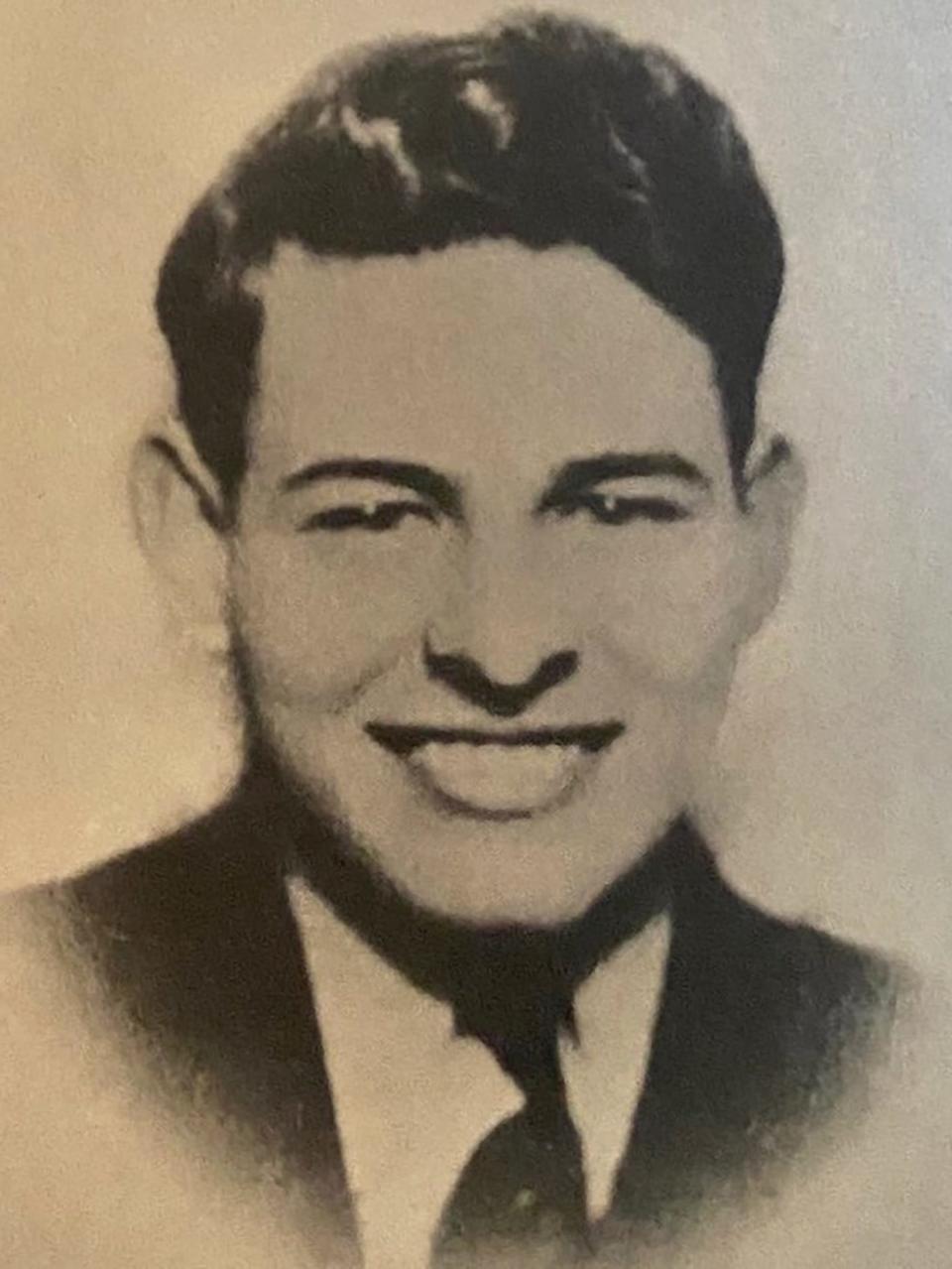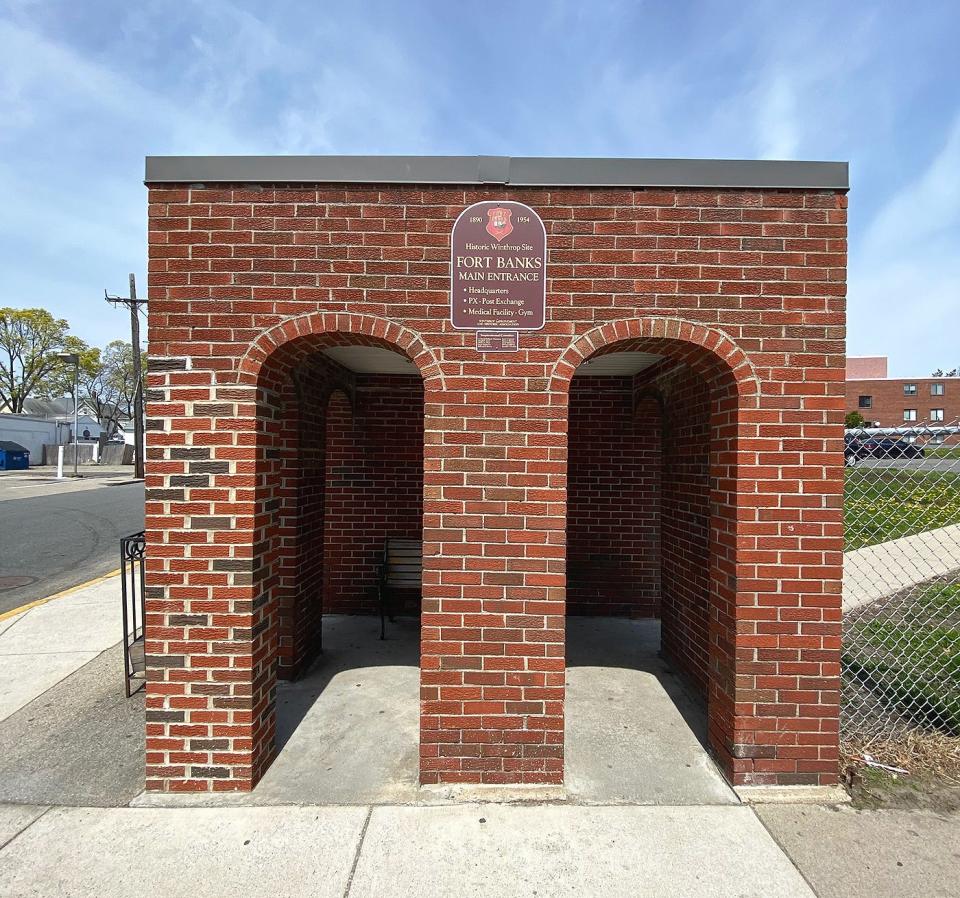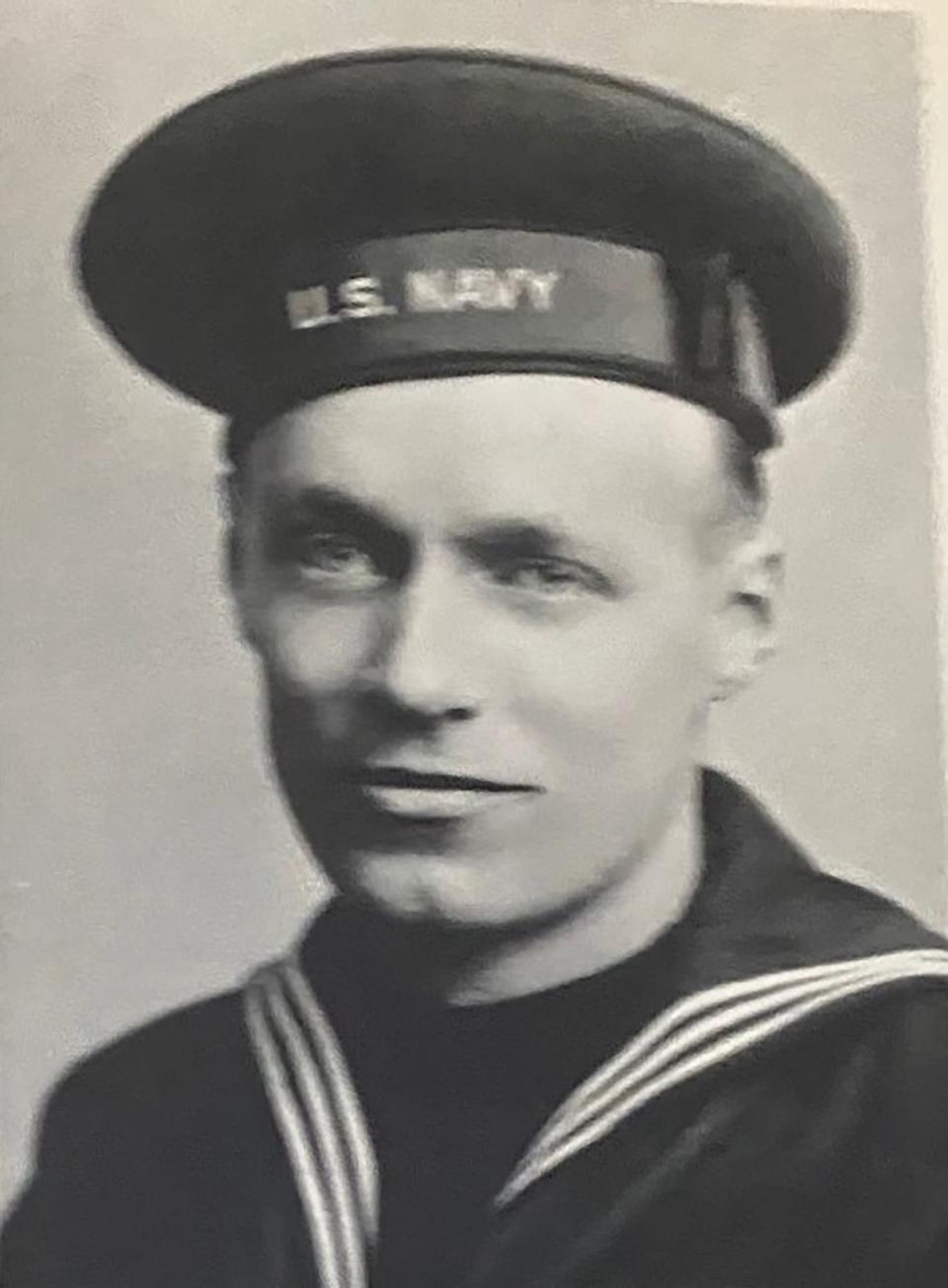Remembering Local World War II Heroes: Ferdinand Trudel, Part 2; Edwin C. Uppgard
- Oops!Something went wrong.Please try again later.
More than any other local casualty of World War II, the death of Pvt. Ferdinand Trudel has been shrouded in mystery and controversy for over 80 years.
Trudel reported to Fort Devens as a volunteer member of the Selective Service on Feb. 14, 1941, and was stationed at Fort Warren, located on an island in Boston Harbor. After he exhibited some erratic behavior, he was returned to the mainland to Fort Banks in Winthrop, Mass., where, upon arrival, he was found to have some mysterious injuries.
He was then transferred to the Boston Psychopathic Hospital, and eventually to Massachusetts General Hospital where he would die just a little over three weeks after he entered the service.
This is the continuation of the series Remembering Local World War II Heroes.
A full investigation into the death of Trudel was ordered and Medical Examiner William J. Brickley, who performed the autopsy, declared Trudel’s death was caused by general peritonitis due to rupture of the gallbladder and contusions of the intestines. The doctor said he was unable to say where or when Trudel suffered the injuries but did note that the abdominal injuries resulted from “violence.”

“Our family always thought perhaps he got beat up because he was bruised on his face when my father went to identify him. That was the consensus for our family,” said Pete Trudel, who was only 9 years old when his brother died. “Today, it probably would have been different, but then it was pretty cut and dry.”
An inquiry into the death of Trudel was ordered by Maj. Gen. James A. Woodruff. He directed the inspector general at the corps area headquarters to make a “full and complete investigation” of all details surrounding the case from the date of Trudel’s induction into the military service on Feb. 14 until the time of his death at Massachusetts General Hospital on March 8.
Lt. Col. Dean F. Winn, post surgeon at Fort Banks, said that an investigation showed Trudel had no injuries other than the abrasion on his face when he left that hospital in an Army ambulance for Boston Psychopathic Hospital. He was certain Trudel had no other injuries or symptoms when he left Fort Banks.

Trudel’s parents and Deputy Sheriff Edmond J. Tousignant conferred with Winn as to why the family was not notified by Army officials when he was discharged from the Army and taken in an Army ambulance in a straightjacket to the Boston Psychopathic Hospital.
Five separate investigations into his death were conducted by the homicide bureau of the Boston Police Department, the G-2 Intelligence section of the Army, Headquarters of the First Corps Area, the FBI and the State Department of Mental Health at Boston Psychopathic Hospital.
Among the questions upon which investigators sought information was why Trudel, if badly bruised and very ill, was not removed more promptly to Massachusetts General Hospital. He was not admitted there until March 4.
An inquiry that dated back to Trudel’s admission to Boston Psychopathic Hospital was also being conducted by the Massachusetts Department of Mental Health. Detective Sgt. Joseph B. Fallon said that testimony of attendants at the military hospital at Fort Banks indicated there were no bruises on Trudel’s body when he was dressed and sent to Boston Psychopathic Hospital on Feb. 23. An ambulance driver, Fallon said, offered corroborative testimony.
Fallon claimed that Fort Warren was “as clean as a whistle in this case,” adding there was no doubt in his mind that the soldier had not suffered his injuries while stationed there.
However, police interviewed officials and soldiers at Fort Banks and Boston Psychopathic Hospital and reported they had been given “two absolutely contradictory statements.”
Army officials maintain Trudel left Fort Banks in perfect physical condition, while doctors at Boston Psychopathic Hospital indicated his body was badly bruised when admitted there from the Army ambulance.
“Fred Blake, our state representative, worked like hell to try to find out what happened,” said Pete Trudel. “In those days, the Army probably told people who knew anything to shut up and not say anything.”
The investigation never found any wrongdoing on the part of soldiers or personnel at Fort Warren. Almost as quickly as the inquest began, it concluded without any findings.
A quick autopsy was performed and, while the investigation was still ongoing, Trudel’s funeral was held on March 12 from Holy Rosary Church with burial in St. John’s Cemetery in Gardner.
Fort Warren was permanently decommissioned in 1947 and is now a tourist site. It was designated a National Historic Landmark in 1970 as a masterpiece of coastal engineering of the pre-Civil War period and for its role in the Civil War.
Also in 1947, Fort Banks and its 250-bed hospital was declared surplus by the Army and its land was purchased by the town of Winthrop. Private developers turned it into municipal facilities and today the Governor’s Park condominium complex is there.
In addition, the Boston Psychopathic Hospital, which was located at 74 Fenwood Road, closed in 2010 and was demolished in 2011. Currently, the Massachusetts Mental Health Center continues to operate at 75 Fenwood Road across the street.
So, nearly any trace of Ferdinand Trudel and his mysterious death has faded into the past.
Pete Trudel turned 91 this month, while his sister, Pauline Mallet of Athol, turned 101, also this month.
Sadly, neither they, their parents or their other deceased brothers ever got the full story behind what happened to their brother, Ferdinand, officially the area’s first World War II casualty.
Machinist’s Mate 2nd Class Edwin C. Uppgard (1910-1943)
Edwin Carl Uppgard was born in Gardner on Nov. 4, 1910, the son of August and Louise W. (Nordman) Uppgard. He lived at 27 Foss Road, attended Coleman Street School and later Gardner High School.

After his freshman year, he left high school in 1925 to find work to help support his family. His Finnish-born father, August, had suffered of an illness for four years before his death at the age of 51 in January of 1926. August had been employed in the woodshop at Heywood-Wakefield Co. at the time of his death and left five other children beside Edwin; three other sons, Reynold, Ivar and Hugo, and two daughters, Olga and Emma.
Edwin later moved to Brooklyn, N.Y., where he worked for several years. While there, he met Lillian Nystrom, whom he later married. Uppgard entered the naval service at Brooklyn on Nov. 17, 1942. He was sent to Great Lakes, Ill., Training Station for boot camp and later to New Orleans before being assigned to LST-29 as member of a training crew at Pensacola, Fla.
While stationed in New Orleans on Army and Navy maneuvers on July 27, 1943, the 32-year-old Uppgard was washed overboard by a heavy sea and was drowned. Two shipmates made an attempt to rescue him but nearly lost their own lives in the attempt.
The recipient of the World War II Victory Medal, Uppgard was buried in the soldiers and sailors lot in Crystal Lake Cemetery in Gardner.
Comments and suggestions for Remembering Local World War II Heroes can be sent to Mike Richard at mikerichard0725@gmail.com or in writing to Mike Richard, 92 Boardley Road, Sandwich, MA 02563.
This article originally appeared on Gardner News: Local World War II Heroes: Ferdinand Trudel, Part 2; Edwin C. Uppgard

